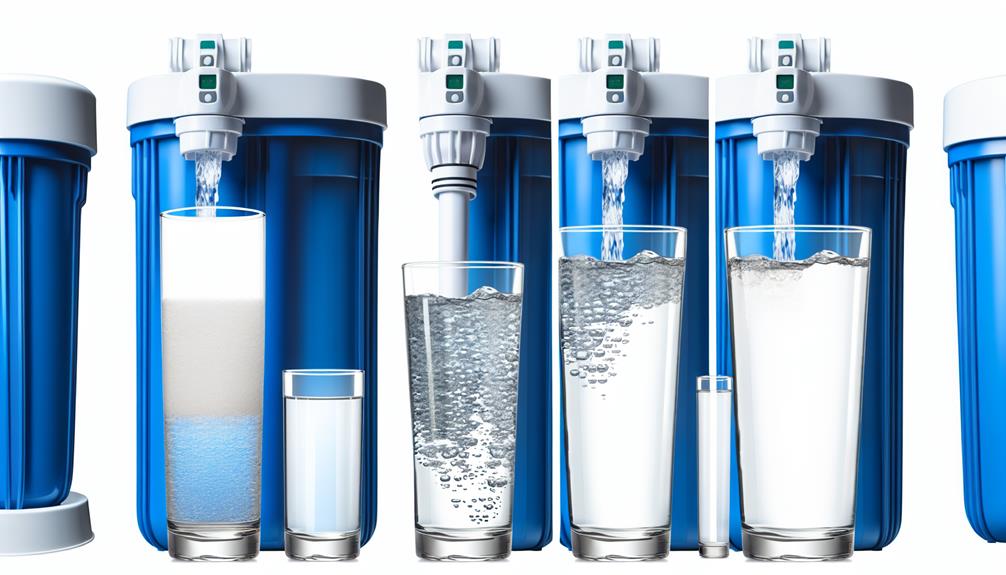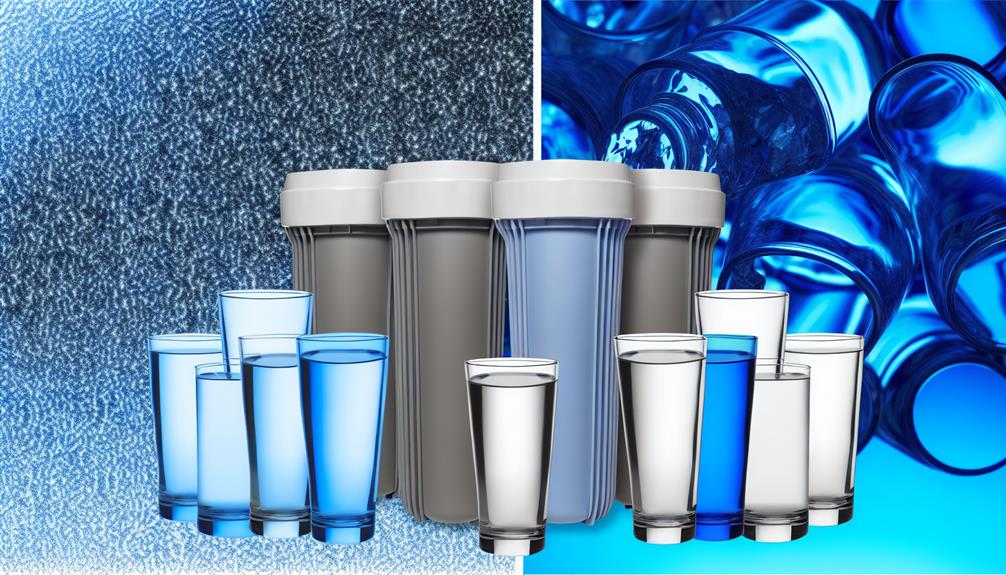Did you know that over 77 million Americans live in communities where their water systems are in some violation of safety regulations?
You're likely considering a house-wide water filter as a proactive step towards ensuring your family's health and peace of mind.
The costs of installing such a system, however, can vary widely, influenced by factors including the complexity of the filter system you choose, the quality of materials and components, and the labor charges in your locality.
You might also be weighing the benefits of additional features and technologies that can enhance your water quality but affect your budget.
Understanding these variables is crucial, as they not only affect the initial investment but also the long-term maintenance and service expenses.
As you consider the clear advantages of filtered water, let's explore what else you should take into account before making a decision that will impact not just your wallet, but also your daily life.
Filter System Complexity
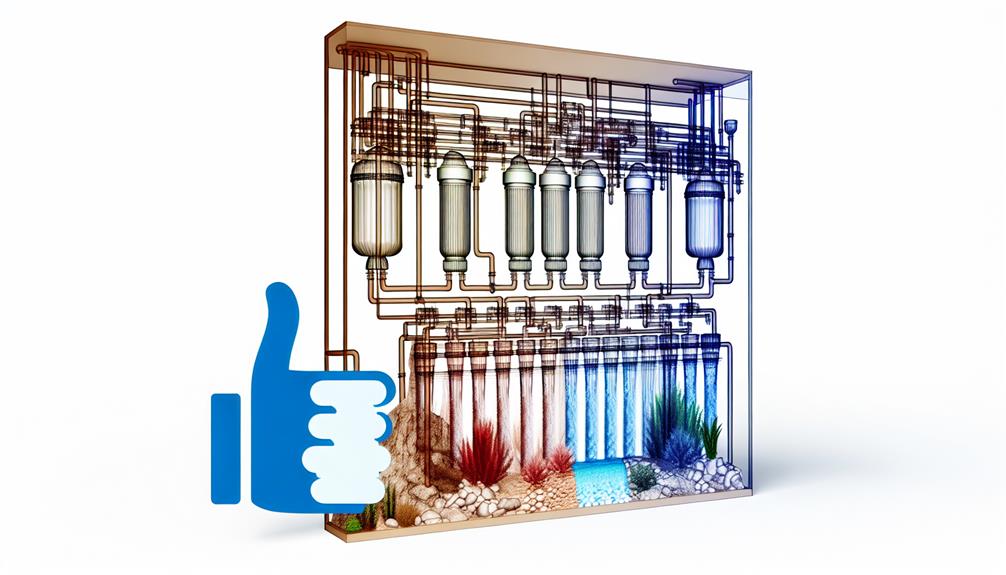
The complexity of your chosen water filter system directly impacts installation costs, as more intricate setups often require specialized knowledge and additional labor. You're not just buying a product; you're investing in a system that must integrate seamlessly with your existing plumbing.
Filter capacity plays a pivotal role in this equation. High-capacity systems, designed to handle larger volumes, necessitate a more labor-intensive installation process. These units often demand modifications to your main water line, which can be a complex task, especially in older homes with outdated plumbing.
Furthermore, placement constraints can escalate costs. You've got to consider the space required for the system and whether your chosen location supports easy access for maintenance. Tight spaces or unconventional locations can complicate the installation, requiring additional time and potential alterations to the surrounding area.
Bear in mind that the higher the system's complexity, the more you'll be delving into a realm where DIY solutions become less viable. You're looking at bringing in certified plumbers with the expertise to ensure that your system operates at peak performance. This isn't just about making connections; it's about configuring the system to your home's unique specifications and ensuring compliance with local building codes.
Material and Component Quality
Beyond the intricacies of installation, you must also consider that the durability and efficacy of your water filter are governed by the quality of materials and components used in its construction. When you're assessing potential systems, keep in mind that superior materials can significantly extend filter lifespan and enhance contaminant removal. To help you navigate this, here's a breakdown:
- Filter Media Quality: Opt for premium-grade filter media, such as activated carbon or reverse osmosis membranes, which have a higher contaminant adsorption rate and durability.
- Component Build: Ensure that valves, fittings, and housings are constructed from robust materials like reinforced polypropylene or stainless steel to withstand water pressure and prevent leaks.
- Certifications: Look for systems with NSF/ANSI certifications, indicating that they meet strict health and safety standards for contaminant removal and material safety.
- Proprietary Technologies: Some brands incorporate unique technologies that may offer enhanced filtration performance or maintenance features; be aware these can affect both initial and long-term costs.
Investing in a system with high-quality materials and components won't only provide you with safer, cleaner water but also reduce the frequency of maintenance and replacement, ultimately saving you money in the long run.
Labor and Installation Charges
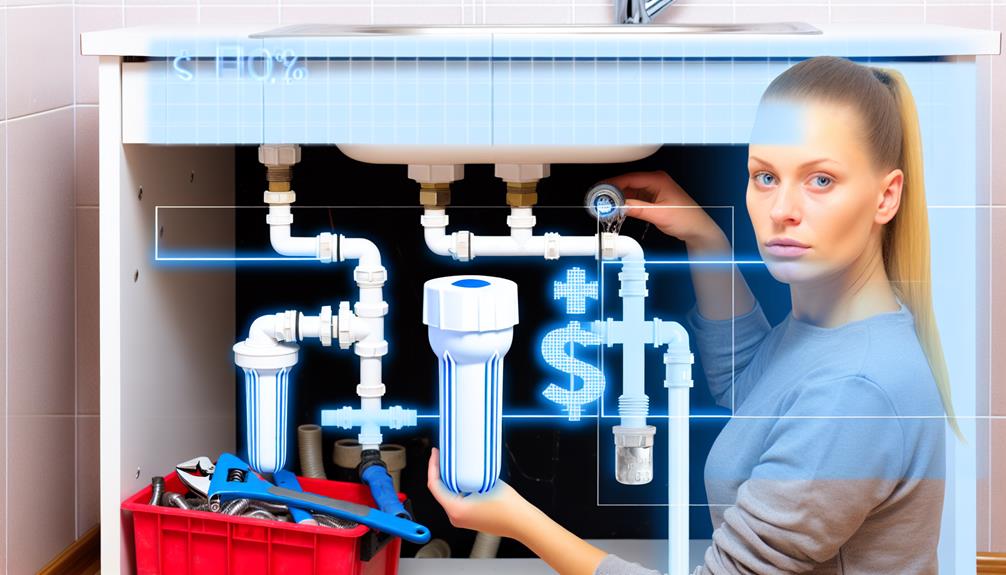
When you're ready to install a water filter, it's crucial to factor in the labor and installation charges, which can vary widely based on the complexity of the system and the rates of the technicians. The installation timeframe and plumber experience are key factors that influence these costs. A seasoned plumber might charge more per hour but could complete the installation more efficiently than a novice, potentially reducing the overall cost.
Here's a breakdown of potential charges:
| Factor | Impact on Cost |
|---|---|
| Plumber Experience | Higher rates for seasoned professionals, but possibly lower overall cost due to efficiency |
| Installation Timeframe | Longer installations increase total labor costs |
You need to consider that intricate systems requiring extensive plumbing modifications will inflate the installation timeframe, thus hiking up labor costs. Conversely, a point-of-use system might be a quick install, reducing your financial outlay for labor.
A practical tip: ask for detailed quotes that include both labor and material costs. Ensure that the quote specifies the hourly rate and estimated hours for completion. This transparency allows you to weigh the plumber's experience against the projected timeframe, providing a clear insight into the anticipated investment in your water filtration system.
Additional Features and Technologies
Considering additional features and technologies for your water filter can significantly influence both performance and price. You'll want to evaluate the long-term benefits against the upfront costs to make an informed decision. Here's a breakdown:
- Filter Lifespan Enhancements: Opting for premium media or components can extend filter lifespan, reducing the frequency of replacements. High-capacity systems may employ advanced resins or proprietary media blends, ensuring longevity and consistent water quality.
- Smart Monitoring Systems: These high-tech solutions enable real-time tracking of water usage and filter efficacy. Smart monitoring alerts you to system anomalies or when it's time for maintenance, optimizing filter performance and safeguarding against unforeseen breakdowns.
- Automated Backwashing: For certain filtration media, an automated backwashing feature is critical to maintain flow rates and prevent channeling. This periodic regeneration clears accumulated contaminants, preserving the media's filtering capacity.
- UV Purification Add-Ons: An ultraviolet light stage can be integrated to neutralize microbiological contaminants. While increasing installation costs, UV purification provides an extra layer of protection, important in areas prone to such waterborne risks.
Maintenance and Service Plans
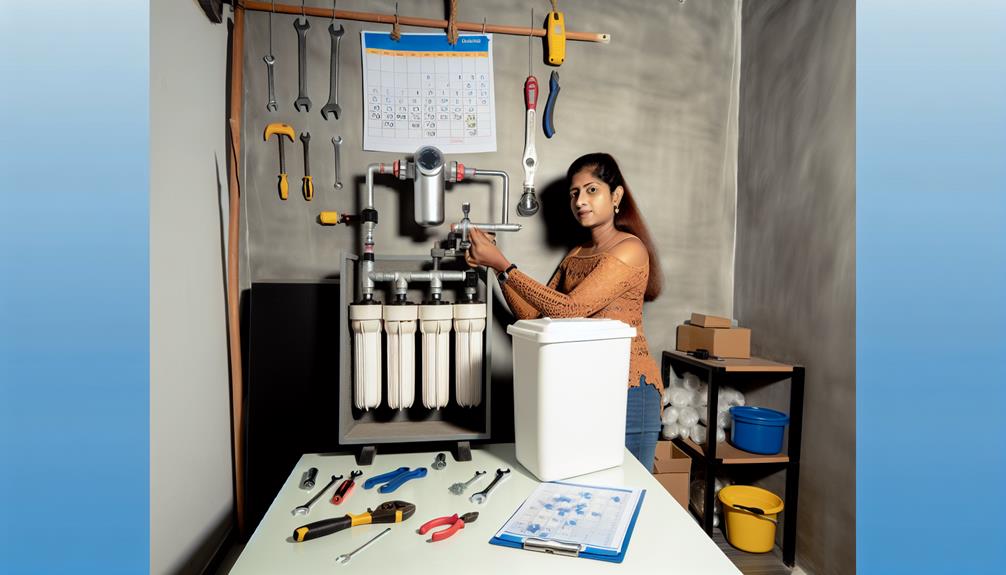
While assessing the upfront investment in advanced water filter features is crucial, you'll also need to consider the ongoing costs associated with maintenance and service plans to ensure optimal functionality over time. Understanding the replacement frequency of consumables, such as filter cartridges or media, is pivotal. This frequency is contingent upon your water usage and the specific filtration technology employed.
The granularity of filter media, for instance, dictates the sediment load it can handle before necessitating a swap-out. Moreover, the warranty terms aren't to be overlooked; they can mitigate future outlays. A robust warranty often covers critical components and can vary from a limited time frame to a lifetime guarantee, contingent on the manufacturer's confidence in their product's durability.
Service plans might include periodic inspections and professional servicing, which are indispensable for complex systems like reverse osmosis units. These plans could be structured as annual contracts or pay-per-service arrangements, providing you with flexibility in managing maintenance expenses.
Always scrutinize the fine print regarding what's included in your service agreement—valve checks, pressure tests, and sanitization runs are common inclusions. Aligning these maintenance efforts with your system's operational demands will ensure enduring water quality and system longevity, ultimately safeguarding your investment.
Conclusion
In sum, your whole-house water filter installation costs hinge on system intricacies, component caliber, and labor expenses.
Factor in the price of cutting-edge features and long-term service agreements.
As you navigate these variables, remember that upfront investment in premium materials ensures longevity and performance, mitigating future outlays.
Weigh these aspects carefully to make an informed decision that aligns with your water quality needs and financial plans.
Choose wisely—your home's water purity depends on it.
